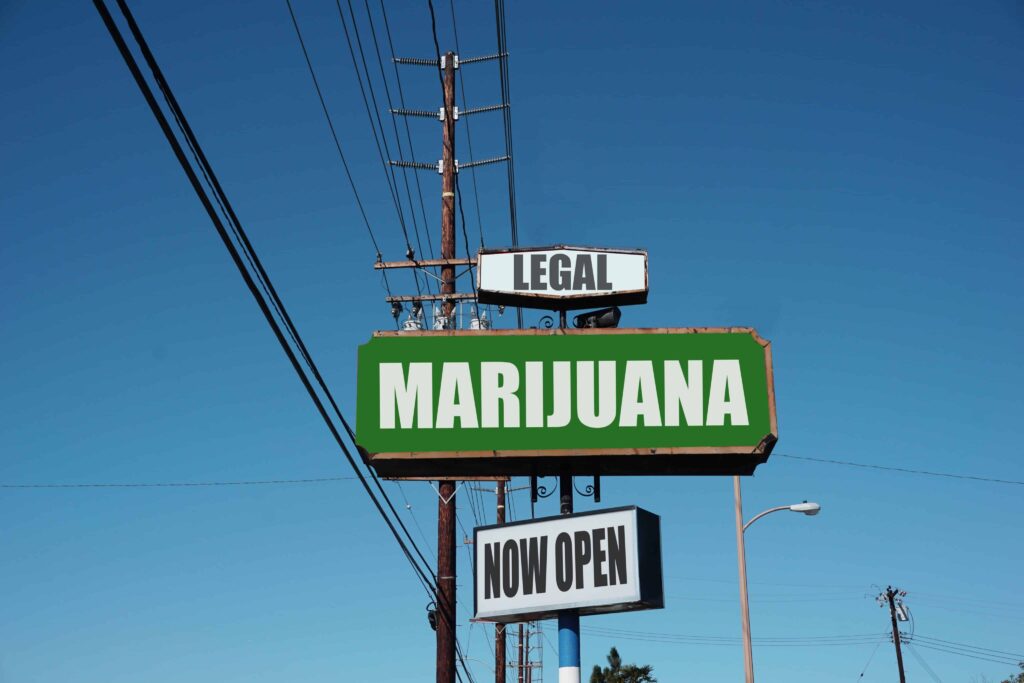
New York’s cannabis regulatory agency on Monday announced that it has reached a settlement in two lawsuits that have been blocking the opening of retail weed dispensaries for months. The settlement sets the stage for more than 400 Conditional Adult-Use Retail Dispensary (CAURD) licensees to finally open their businesses after months of waiting for the lawsuit to be resolved.
The lawsuits against New York’s Cannabis Control Board (CCB) are challenging the agency’s process for awarding licenses for the state’s first recreational cannabis dispensaries, which were reserved for individuals with previous marijuana-related offenses on their record. One of the lawsuits was filed by a group of military veterans, while the second legal action was brought by a group of medical marijuana companies seeking access to New York’s lucrative retail weed market.
In August, after only a handful of recreational pot shops had opened, state Supreme Court Justice Kevin Bryant issued a temporary injunction blocking the opening of additional dispensaries with licenses issued under the CAURD program. The judge ruled that the CCB had improperly reserved all of the initial retail dispensary licenses for those with pot convictions instead of considering a wider group of social equity applicants outlined by New York’s 2021 law legalizing adult-use cannabis.
Some of the businesses were later allowed to open their doors, but less than three dozen shops have begun serving customers across the state. At the same time, more than 400 businesses approved for CAURD licenses have been left in limbo while the legal drama continues.
At an emergency meeting of the CCB on Monday, the board voted to approve a settlement agreement state lawyers negotiated with attorneys for the plaintiffs in the lawsuits.
“Today’s approval of the settlement agreement by the New York State Cannabis Control Board marks a momentous step forward in our mission to cultivate a diverse and inclusive cannabis market,” CCB Chair Tremaine Wright said in a statement from the agency. “Once this settlement is approved, we are hopeful those impacted by the injunction will be empowered to open their storefronts and embark on their entrepreneurial journeys, bringing us closer to our goals.”
Regulators Announce Application Period For More Licenses
The settlement follows the CCB’s recent approval of a new cannabis application period for licenses to grow, distribute and sell cannabis. The new application window is expected to result in more than 1,000 new licenses for New York’s recreational cannabis market, which has been stunted by the delayed approval of licensed retailers.
“Today, we are one step closer to resolving litigation brought forth by equity entrepreneurs and our medical operators who felt that they were being left behind,” said Chris Alexander, executive director of New York’s Office of Cannabis Management. “Now that we have opened up licensing to all equity entrepreneurs and provided a clear pathway to participation in the adult-use market for our medical operators, we are able to continue to move this program forward together.”
The CCB noted that with the settlement, more than 400 CAURD licensees will be able to proceed with opening their shops. Michelle Bodian, a partner at the cannabis law firm Vicente LLP, said “It’s a good day for the NY cannabis industry,” when details of the settlement were released on Tuesday.
“With the settlement agreements filed in both lawsuits, we know NY has the potential to have many more adult-use stores in 2024,” Bodian wrote in an email to High Times. “Although the state cannot award any more provisional CAURD licenses till April, the 436 provisional CAURD licensees can move forward towards a final license. In addition, five registered organizations will be permitted to transition one store to the adult-use market on or after December 29, 2023.
Osbert Orduna, CEO of The Cannabis Place, owns a Queens-based licensed pot delivery service but was blocked from opening an approved dispensary on Metropolitan Avenue in Middle Village because of the injunction.
“After months of the harmful impact on legal operators trying to open, there is some great holiday daze for the entire cannabis community,” Orduna told the New York Post.
Read full article on High Times

